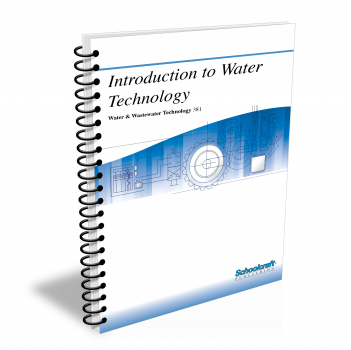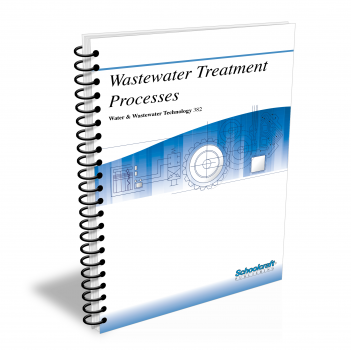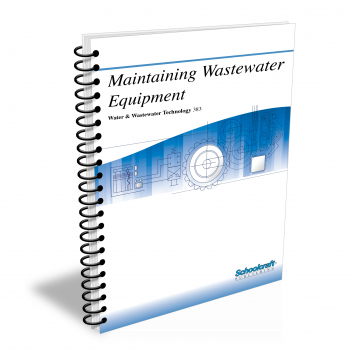Introduction to Water Technology

Course Number: 381
The Introduction to Water Technology textbook covers the nature, use, and properties of water. It traces the history of water treatment methods from ancient times to today's sophisticated systems. The effects of chemical and biological factors on the purity of water are explained.
Does your curriculum require additional topics not included in this textbook? Build a customized version of the Introduction to Water Technology textbook below.
Recommended Contact Hours – 10
Preview a Chapter
Available Supporting Material
- Table of Contents
- Exam Copies
- Suggested Titles
Table of Contents
Chapter 1: Water: The Basic Resource
Topics: Precipitation; Surface runoff; Groundwater; Municipal, industrial, and agricultural use; Waste disposal; Upgrading water quality
Learning Objectives:
- Name the continuing processes that make up the water or hydrologic cycle.
- Describe the atmospheric process that produces precipitation.
- Identify the users of municipal water supplies.
- Point out some of the important advances made in water treatment since 1900.
- List the benefits of the Federal Water Pollution Control Act Amendment of 1972.
Chapter 2: Water Collection, Treatment, and Distribution
Topics: Collecting surface water and ground water; Transmission of water; Treatment types; Distribution; Primary, secondary, and tertiary treatment
Learning Objectives:
- Explain the differences between a confined aquifer and an unconfined one.
- Tell why it is necessary to treat water for drinking and for manufacturing purposes.
- Describe the treatment processes of sedimentation and coagulation.
- Describe how a system for the distribution of treated water operates.
- Tell what takes place during the primary treatment of wastewater.
Chapter 3: Physical Properties of Water
Topics: Color, taste, odor, and temperature of water; Solids in the water; Turbidity; Suspended matter; Measuring electrical conductivity
Learning Objectives:
- Distinguish between the apparent color and the true color of water.
- Name the four basic tastes of water that a person can sense.
- Tell how a rise in temperature affects the various properties of water.
- Name the sources of organic and inorganic solids that pollute wastewater.
- Explain the differences between suspended solids and dissolved solids.
Chapter 4: Chemical Properties of Water
Topics: Atoms and molecules; Acids, bases, and salts; Ionization; Alkalinity and acidity; Hardness of water; Unwanted chemicals; Dissolved oxygen
Learning Objectives:
- Identify the particles in an atom, and tell how they fit together to form the atom.
- Describe the relationship between a pH number and the concentration of H+ ions.
- Name the two color tests for alkalinity of water and tell what colors they produce.
- Describe the ion exchange and lime-soda processes for removing hardness from water.
- Tell why a certain amount of dissolved oxygen (DO) is necessary in surface water.
Chapter 5: Biological Properties of Water
Topics: Pathogenicity; Disinfection; Stabilization of organic matter; Biochemical oxygen demand; Bacteria; Viruses; Algae; Protozoa
Learning Objectives:
- List the methods commonly used to disinfect water.
- Tell how temperature changes affect the rate at which living organisms grow in water.
- Tell how-and how rapidly-common bacteria reproduce.
- List the most effective methods used to inactivate viruses.
- Explain how the presence of algae speeds the process of eutrophication.
Request Exam Copies
Exam Copies
Ready to see a copy of our textbooks? After selecting which textbooks you’d like to review for your course, you can submit your request by either logging in or creating an account so we know where to ship your exam copies. A representative from Schoolcraft will contact you to confirm and finish processing your request.
Exam copies are always free and yours to keep.
Selected Exam Copies
none selected
* Maximum of five copies can be ordered

